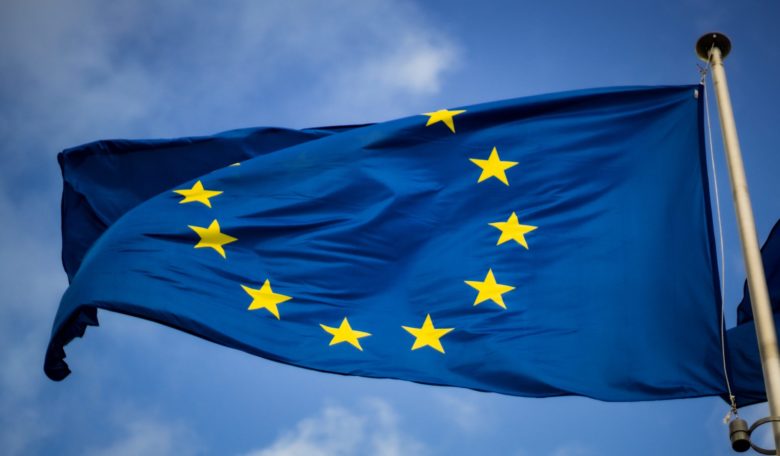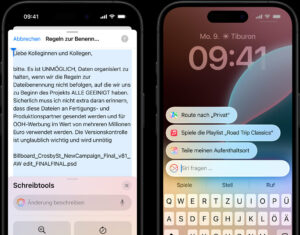Digital Markets Act: How tech giants are reacting to the EU regulation

Yesterday, Wednesday, March 6th, was the deadline for the tech industry’s biggest gatekeepers to comply with the EU’s Digital Markets Act (DMA). The DMA requires mega-corporations to allow more interoperability and avoid favoritism for their own digital services. After much dispute, the directive is finally coming into force. The EU has named six companies as “gatekeepers” – large digital platforms that provide “core services” such as app stores, search engines, and web browsers: Alphabet, Amazon, Apple, ByteDance, Meta, and Microsoft. The Verge has reported how companies are reacting to the regulation.
Digital Markets Act is intended to create more fairness
The six gatekeepers have until March 6, 2024, to comply with the DMA rules for the 22 services specified by the European Commission. These companies have until March 7, 2024, to submit reports to the EU explaining how they plan to comply with the rules. European officials will later evaluate these plans in workshops with each of the affected companies.
In general, platforms need to take proactive measures that the EU believes will make digital markets fairer and more open. For example, gatekeepers must allow third-party interoperability with their services, they must not favor their own products in rankings over those of competitors, and they must not make access to the app store for external developers conditional on the use of their payment systems or other services.
Gatekeepers need to customize certain services
The European Commission considers a platform to be a gatekeeper if it meets two conditions. First, it must have achieved an annual turnover of at least 7.5 billion euros in the last three tax years in the EU or an average market capitalization of 75 billion euros in the last tax year and offer its core platform in at least three EU member states. Second, the company must operate a core platform with at least 45 million monthly active users in the EU and more than 10,000 annual active business customers in the EU in each of the last three tax years.
The Commission has identified specific services for each of the designated gatekeepers that it considers to be subject to the DMA rules. Gatekeepers who do not follow the rules can be fined up to 10 percent of global sales, and up to 20 percent for repeat violations.
alphabet
Google’s parent company Alphabet has several services that fall under the DMA guidelines. In addition to Google services, this also includes YouTube and the Android operating system. The group therefore announced a series of changes. These include selection screens for selecting a default browser on Android devices and a default search engine in the cross-platform Chrome browser. Users should now be able to make this selection.
Additionally, Alphabet wants to provide more links to competing sites when Google searches for things like flights and hotels. An exemption for the sharing of certain data is also planned. Developers of Play Store apps should have the option to direct users in Europe outside of their apps to promote alternative payment offers.
Alphabet’s proposed changes have angered some competitors, particularly smaller, specialized search platforms. The online review platform Yelp recently claimed that the search changes not only “violated the DMA ban on self-referencing, but actually increase the rate at which users stay in Google’s walled garden.” Some also question the concept of selection screens Ask.
Apple
Apple is one of the main targets of the Digital Market Act. Both the iOS operating system, the Safari web browser and the App Store are considered “core platform services”. The App Store in particular is notorious for its high fees for developers. On January 25, the company announced that it would introduce several changes with the iOS 17.4 update to comply with new EU regulations.
Apple wants to enable the distribution of iOS apps via third-party marketplaces. There will also be APIs that enable developers of third-party marketplaces to manage app installations and updates. Apple now also wants to support third-party browser engines and ask iOS users to select a standard browser.
Apple has only implemented these measures very reluctantly and there is also a lot of criticism here. Critics view them as inadequate or even as “malicious compliance”. Apple’s new rules would require App Store alternatives to either pay a “core technology fee” of 50 cents for apps with more than a million downloads or stick to the 15 to 30 percent the company currently withholds.
Apple stops autonomous electric car project, Musk celebrates
Meta
Facebook operator Meta has a long history of acquiring competing social networks and messaging services and has a powerful advertising platform. In addition to Facebook itself, services such as Instagram, WhatsApp and Messenger also fall under the DMA.
In the future, Meta wants to enable, among other things, cross-platform messages from third-party providers, primarily for WhatsApp. However, Meta has appealed some parts of its gatekeeper designation. In November, the company argued that Messenger and Marketplace did not belong on the list because the former is an integrated Facebook feature and the latter is a consumer-to-consumer service in which Meta does not act as an intermediary. The challenge has not yet been completed by the deadline this week.
Amazon
E-commerce giant Amazon dominates its field with a complex data collection system and a massive third-party marketplace. Both the online marketplace and the advertising business fall under the DMA. Amazon is already asking customers who visit its EU shop for permission to collect their data for personalized advertising. Amazon has also committed to providing advertisers and publishers with campaigns in the EU with “new, enhanced reports” that they can access via the Amazon website. These reports provide more detailed information about how much an advertiser pays for ads and how much a publisher receives from ads displayed on a third-party website or app.
However, Amazon has not yet detailed what, if any, changes it is making to ensure its marketplace promotes competition under the DMA. The rules could mean that the company can’t give its brands preferential treatment in search results or copy third-party products – both of which Amazon has been accused of in the past. Amazon has also long been the subject of antitrust investigations in the EU, where regulators accused the company of misusing seller data to stay ahead of competitors.
Bezos, Dimon and Zuckerberg: Together they sold shares worth over $9 billion
Microsoft
Microsoft’s Windows operating system falls under the DMA regulations. The group has now introduced the option to deactivate the integrated Bing web search. There’s also a new option to uninstall the Edge browser, as well as the ability for companies like Google to build their own custom web searches into Windows. As part of the DMA rules designed to make it easier to uninstall pre-installed apps, Windows 11 users will also be able to uninstall the Camera, Cortana and Photos apps.
Microsoft has already rolled out all of these changes to devices in Europe. The EU initially listed a number of other Microsoft tools as gatekeeper services. However, the group successfully appealed to exempt Edge, Bing and Microsoft Advertising from the DMA after regulators agreed with Microsoft’s argument that these services do not qualify as gatekeeper services.
Byte Dance
Chinese tech giant ByteDance is the only non-American company considered a gatekeeper under the Digital Markets Act so far, and it only has a single covered service: the social network TikTok. ByteDance shared earlier this week how TikTok plans to comply with the guidelines. The platform has launched an API that allows European users to transfer their data to other apps that have registered with TikTok to use the tool.
Registered developers can transfer posts, followers and other activity from TikTok to their own apps with user permission. TikTok said it has also improved its “Download your Data” tool, which allows individual users to export and download their posts and other information. And there will be “enhanced data portability solutions” for business accounts.
However, ByteDance simultaneously objects to its classification as a “gatekeeper” and claims that, on the contrary, TikTok “is arguably the most capable challenger to established platform companies.” It argues that the commission based its analysis on ByteDance’s global market capitalization, which the company says reflects business units that don’t even operate in Europe, and that TikTok itself does not meet the required revenue threshold.
Digital Markets Act primarily affects US companies
According to The Verge, ByteDance’s inclusion has a unique political dimension. Some critics believe that the EU is unfairly targeting only American companies. A second non-U.S. company, Samsung, was initially named but was later removed from the gatekeeper list. The fact that a Chinese company is now on the list is intended to counteract this criticism.
AI factories should give EU startups access to supercomputers






























